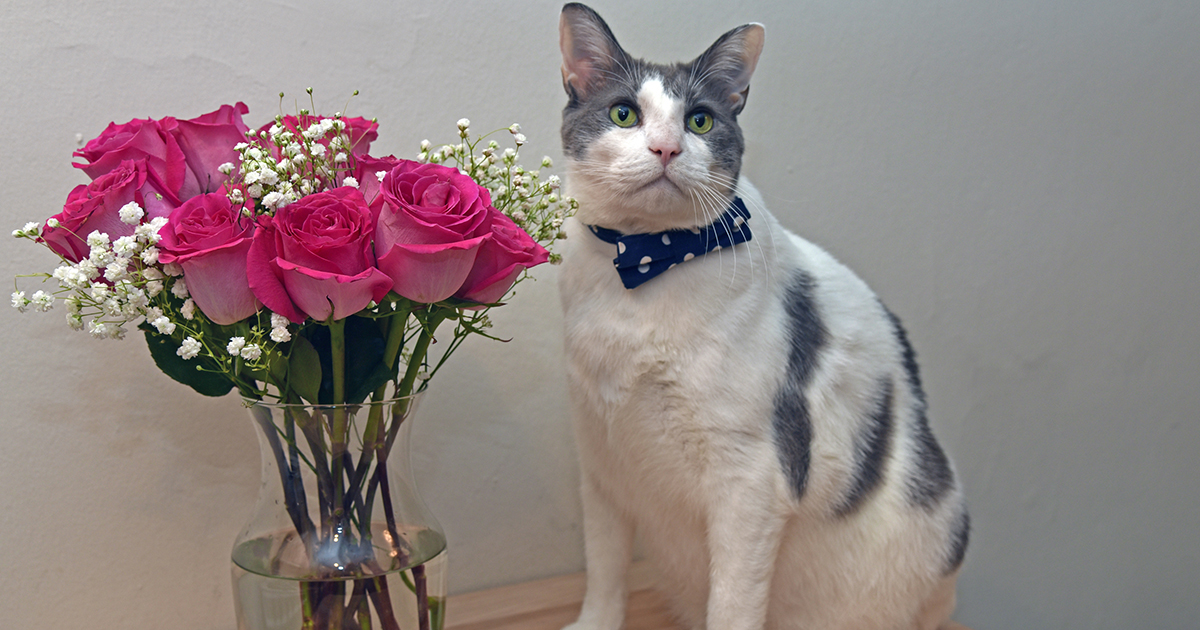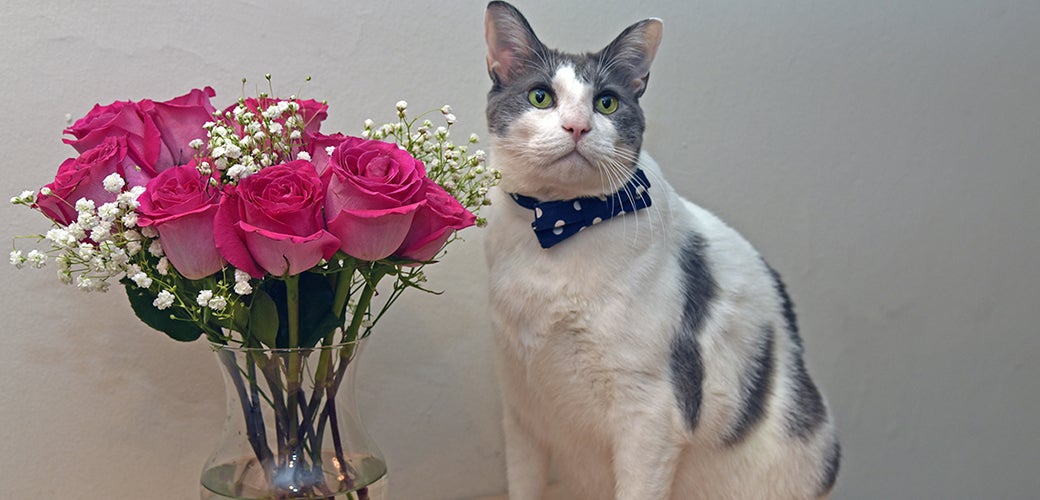We all appreciate the love and care of mothers every single day. And on Mother’s Day, one popular gift is a beautiful bouquet of flowers! If your mother is also a pet parent, you need to be mindful when choosing your Mother’s Day arrangement. Not all flowers are safe for our pets. To ensure the safety and wellbeing of your furry friends, we have put together a guide to pet-friendly flowers.
Pet-Safe Flowers
Roses (Rosa sp.)
Roses can cause mild stomach upset but generally aren’t highly toxic to pets. However, be cautious of thorns, as they can potentially cause mouth and paw trauma. If your pet has been chewing on a rose stem and shows signs of increased drooling or pawing at the mouth, check for signs of trauma. If your pet refuses to eat or shows other concerning symptoms, consult a veterinarian.
Gerbera Daisies (Gebera jamesonii)
Gerbera Daisies, also known as African daisies, Veldt daisies, or Barberton daisies, may cause vomiting or gastrointestinal discomfort when ingested. If symptoms worsen or become more severe, consult a veterinarian.
Sunflowers (Helianthus sp.)
Sunflowers are a cheerful flower that is unlikely to cause more than mild gastrointestinal symptoms if ingested. However, keep in mind that while all parts of the sunflower are edible for humans, our pets may not enjoy them as much.
Orchids (Cymbidum, Dendrobium, Oncidium, and Phalaenopsis sp.)
Orchids are safe flowers to have around pets. However, it’s essential to protect the plants from the pets, as ingesting orchids in large amounts could cause mild gastrointestinal upset. Keep these flowers out of your pet’s reach to fully enjoy their beauty.
Snapdragons (Antirrhinum majus)
Snapdragons are lovely flowers that may be used as a garnish on a plate. While edible, they have a bitter taste that may cause hypersalivation in cats and dogs. Offering your pet something tasty to erase the flavor should resolve any issues.
Freesias (Freesia corymbosa)
Freesias are often used as filler flowers in bouquets. Similar to other flowers on this list, they are non-toxic, but ingestion may result in an upset stomach for pets.
Limonium (Limonium sp.) and Statice (Limonium leptostachyum)
Limonium and Statice are safe filler flowers that can be used in your Mother’s Day bouquet. They add a touch of charm and are unlikely to cause any severe issues if ingested by your pet.
Madagascar Jasmine (Stephanotis sp.)
Madagascar Jasmine has star-shaped white flowers and is both a pretty houseplant and a lovely addition to bouquets. While it could cause mild gastrointestinal symptoms, it should not pose any other risks to your furry friends.
Stock (Matthiola incana)
Stock is often used as a cut flower in bouquets and as an aromatic plant. These flowers symbolize joy, success, and happiness. They carry a beautiful message for your Mother’s Day bouquet.
Waxflower (Etlingera cevuga)
Waxflower is another flower often used as a filler in floral arrangements. While it may cause mild stomach upset in pets, it does not pose any serious risks to their health.
Lisianthus (Eustoma grandiflora)
Lisianthus are prized for their rose-like blooms and are non-toxic. These long-lasting flowers can live for up to two weeks in a bouquet, making them an excellent choice as part of a Mother’s Day gift.
Remember, curious noses and paws might be drawn to Mother’s Day bouquets, whether they contain safe or toxic flowers. It’s best to keep your bouquets and arrangements out of reach from your pets so that everyone can enjoy them without any risks.
If you suspect that your pet has ingested anything toxic or is showing adverse reactions, please contact your veterinarian or the ASPCA Animal Poison Control Center at (888) 426-4435 immediately.
Frequently Asked Questions
Coming soon!
Conclusion
Make this Mother’s Day special by choosing pet-safe flowers for your bouquet. With the information provided, you can ensure the safety and wellbeing of your furry friends while still honoring the moms in your life. Visit Pawsoha for more pet-related information and advice.

